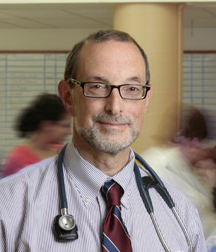CONTACT: Doug Carlson, FSU College of Medicine
(850) 645-1255; doug.carlson@med.fsu.edu
By Ron Hartung
Nov. 3, 2014
STUDY FINDS PARENT INTERVENTION IS BEST FOR HELPING TODDLERS WITH AUTISM
TALLAHASSEE, Fla. — For the first time, toddlers with autism have demonstrated significant improvement after intensive intervention by parents rather than clinicians, according to a new Florida State University study published online in the journal Pediatrics.
“We’ve come up with a treatment model that can teach parents to support their child’s learning during everyday activities, and we’ve documented that the children improved their developmental level, social communication skills and autism symptoms,” said Amy Wetherby, director of the Autism Institute at Florida State University’s College of Medicine and lead author of the Pediatrics study.
Social communication includes eye gaze, facial expressions, gestures, sounds, sharing of emotion, listening, learning to understand words, discovering how to use objects — things that children with autism have difficulty learning.
“The findings are important because this treatment is viable for any community,” Wetherby said. “We have early intervention that’s federally and state funded. Now we’ve tested a model that any early intervention system should be able to offer to all families of toddlers with autism. It’s affordable, and it’s efficient in terms of clinicians’
time.”
Most children are not diagnosed with autism spectrum disorder (ASD) until age 4 — and even later in lower-income, rural and minority families. By contrast, the American Academy of Pediatrics wants every child to be screened at 18 and 24 months of age.
Early diagnosis, however, does little good without early intervention.
In recent years, some intervention trials had achieved improved outcomes for children but required an inaccessible amount of time from clinicians. Others that focused on teaching parents found that the parents learned, but the children didn’t show significant gains from the treatment.
This study, “Parent-Implemented Social Intervention for Toddlers With Autism: An RCT,” outlines the results of a seven-year randomized controlled trial, in which families of 82 toddlers with ASD who were 18 months old were assigned to one of two nine-month interventions.
“We compared the effects of teaching the parents in a group once a week and teaching them individually, where we went to their homes three times a week for six months, and then twice a week for three more months,” Wetherby said. “For both, children improved in using words and autism symptoms. However, children in the second group improved even more on understanding and social communication, demonstrating the impact of the individual sessions at home.
“With our specialized methodology, we taught families to work with their children 20 to 25 hours a week in their everyday activities — not only play but also meals and snacks, caregiving, family chores — and taught them how to bring their children into that activity. We also taught them how to go out in the community, how to take the child to a playground, to a grocery store, to a restaurant, and use these strategies.
“We tried to help parents make interactions fun and fruitful learning moments. But we also taught the parents how to push their child — because their child has autism, and we are finding these children at this very critical moment when their brain is more able to learn. If the parent can start early, then we are more likely to change the child’s trajectory of learning for the rest of their life.”
Wetherby and her Autism Institute team are looking ahead. With National Institutes of Health support, they’re working with Emory University to identify autism and begin intervention in children as young as 12 months. They’re also interested in looking at children with language delays, a much larger share of the population.
“This approach might work for them, too,” Wetherby said. “We want to find out.”
The FSU Autism Institute has developed web-based courses and tools that are being distributed by Autism Navigator (www.AutismNavigator.com) to teach early intervention methods to providers, primary care professionals and families. Wetherby and her team will be building on the research and studying its impact along with researchers at Emory University, Weill Cornell Medical College and Drexel University.
###
Wetherby’s co-authors are Whitney Guthrie, FSU Autism Institute; Juliann Woods, FSU School of Communication Science & Disorders; Christopher Schatschneider, FSU Department of Psychology; Renee Holland, Autism Institute; Lindee Morgan, Autism Institute; and Catherine Lord, Department of Psychiatry, Weill Cornell Medical College, New York.


